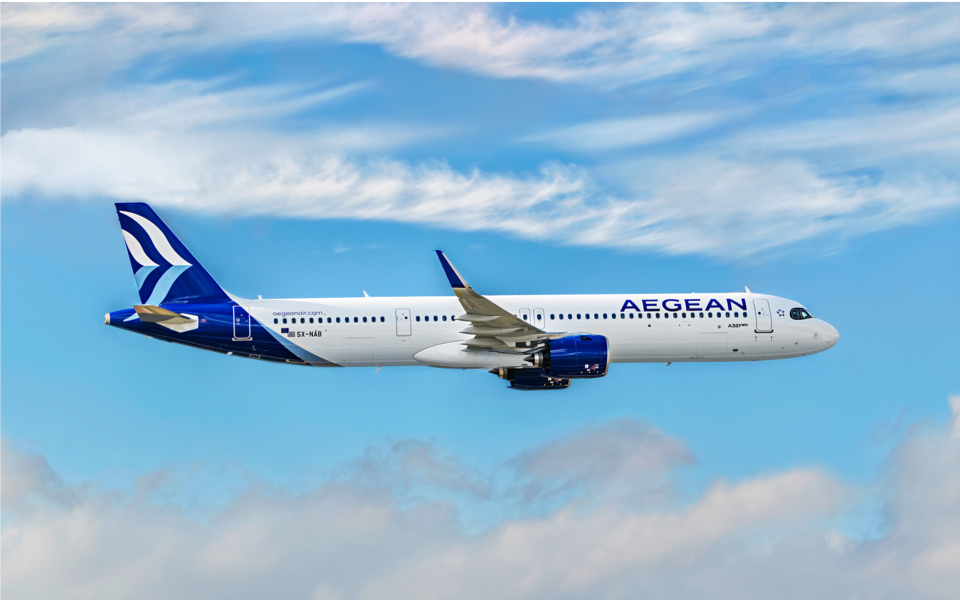Omicron forces airlines to trim flights

The wave of air seat booking cancellations that the Omicron variant has generated is forcing carriers to alter their flights schedules. In the first quarter of the year, traditionally the weakest for Greek tourism, air companies within and outside Greece are scaling back their services, even though the tourism industry anticipates a boom year in 2022.
Until then, Aegean Airlines is amending its scheduled with the reduction of flight frequency and even the cancellation of some services. Greece’s biggest carrier had already introduced certain changes since November, with sources saying that mainly concerned destinations abroad. In any case, the Omicron-provoked restructuring of flights will expand the gap with 2019, leading to a difference of 40% compared to three years ago.
Sky Express, already running on a reduced schedule for seasonal reasons and therefore low demand, will maintain its existing plans according to its officials. Its reduced flight program combined with the short duration of flights offer the Greek carrier plenty of flexibility.
Foreign companies are also facing not only the cancellation of bookings but also a huge number of pilot and cabin crew shortages due to Covid infections, so they have been forced to reduce their flights: For instance, German giant Lufthansa is planning to cancel some 10% of its flight schedule from mid-January till February.
Nevertheless analysts expects the effects of Omicron on air transport to be short-lived, as they foresee the industry recovering and demand for professional travel being restored.
According to a recent report by Eurocontrol, if the Omicron outbreak is reined in, the number of flights across Europe could reach up to 90% of 2019 levels. Last year flights came to 56% of the pre-pandemic year. The European air safety watchdog added in its report that the target for this first quarter of the year should be for flight activity to range between 80% and 85% of 2019, and certainly not drop below 70%, which is Eurocontrol’s adverse scenario for the January-March 2022 period. In the summer, however, Eurocontrol anticipates such a rebound that flights in Greece may face minimal delays.





